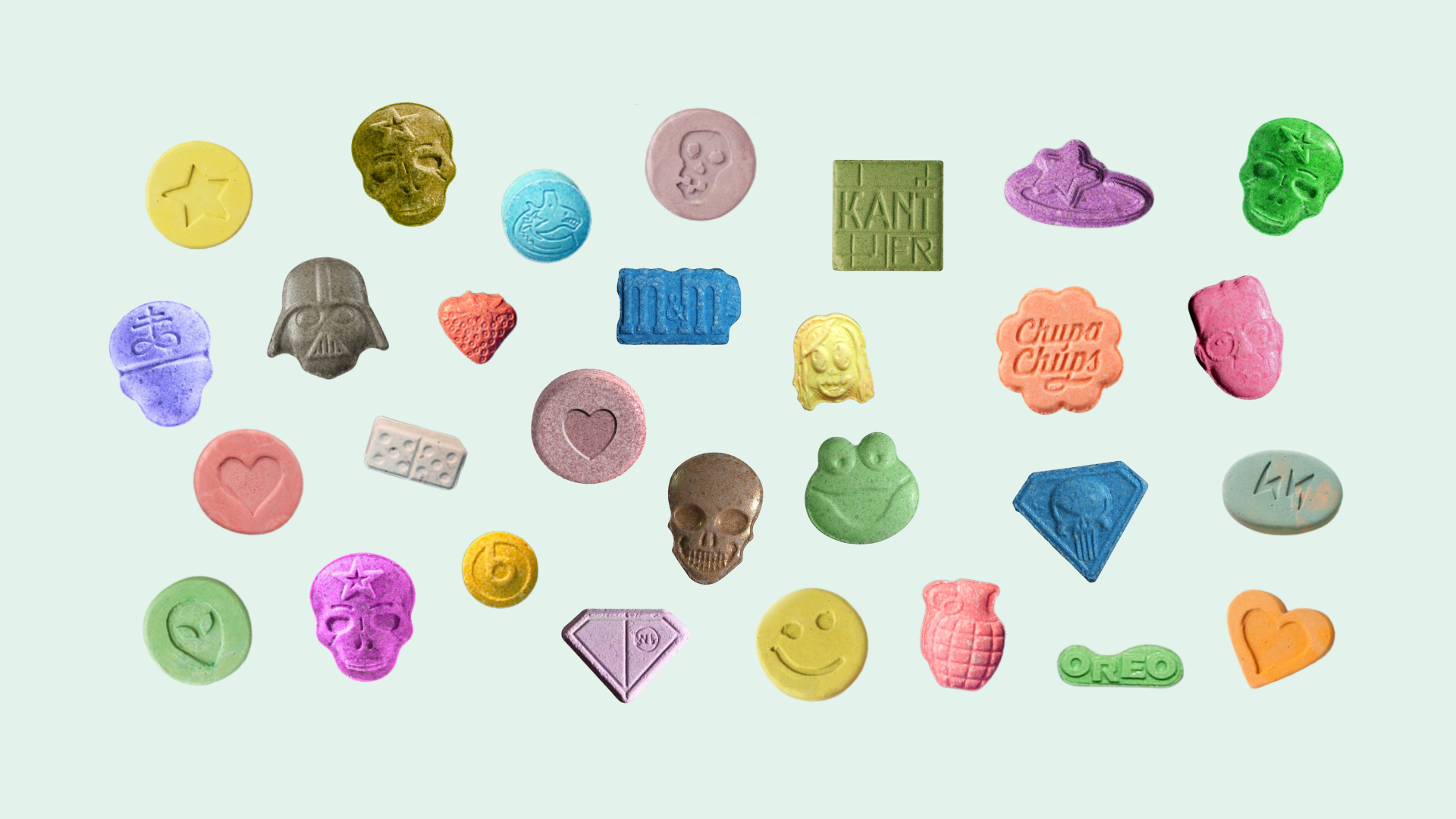What Is MDMA?
MDMA, or 3,4-methylenedioxymethamphetamine, is a synthetic drug that belongs to the class of compounds known as phenethylamines. It shares properties with both stimulants and hallucinogens, producing a unique blend of effects that have made it a popular recreational substance.
MDMA increases the activity of three key neurotransmitters in the brain: serotonin, dopamine, and norepinephrine. The serotonin level surge leads to heightened empathy, emotional openness, and euphoria, while the dopamine and norepinephrine boosts contribute to increased energy, sociability, and sexual arousal.
Traditionally, MDMA has been available in the form of tablets or capsules, often referred to as “ecstasy.” The powdered form, known as “molly,” is sometimes considered the more potent variant. However, the purity and composition of street-purchased MDMA can be highly variable, with many substances being sold as MDMA when they may contain other drugs, such as fentanyl, methamphetamine, cocaine, or synthetic cathinones (bath salts).
What Are the Side Effects of MDMA?
The use of MDMA can result in a wide range of both short-term and long-term side effects, some of which can be quite severe and even life-threatening.
Short-Term Side Effects
- Increased heart rate and blood pressure
- Hyperthermia (dangerously high body temperature)
- Dehydration
- Nausea and vomiting
- Muscle cramping
- Blurred vision
- Involuntary jaw clenching
- Anxiety and paranoia
- Hallucinations and disorganized thoughts
Long-Term Side Effects
- Cognitive impairments, including problems with learning and memory
- Serotonin depletion, which leads to depression and mood swings
- Cardiovascular issues, such as irregular heartbeat, high blood pressure, and increased risk of stroke or heart attack
- Liver and kidney damage
- Increased aggression and impulsivity
What Is MDMA Addiction?
While the concept of ecstasy addiction is not as well-defined as addiction to other substances, such as alcohol or opioids, research suggests that regular MDMA use can lead to the development of problematic patterns of use and dependence.
The key signs of an MDMA use disorder include:
- Taking MDMA in more significant amounts or for longer than intended
- Unsuccessful attempts to cut down or control use
- Spending a considerable amount of time obtaining, using, or recovering from use
- Strong cravings or urges to use ecstasy
- Neglecting essential responsibilities at work, school, or home
- Continuing to use ecstasy despite the knowledge of its negative consequences
While MDMA may not lead to the same level of physical dependence as seen with opioids or alcohol, regular users can experience a “crash” or withdrawal-like symptoms, such as fatigue, depression, and difficulty concentrating, when they stop using the drug.
What Is Comprehensive MDMA Addiction Treatment?
Effective treatment for MDMA addiction typically involves a multifaceted approach that addresses the physical, psychological, and social aspects of the disorder. The continuum of care for MDMA addiction may include the following components:
- Medically-assisted detoxification
- Inpatient or residential treatment
- Outpatient treatment
- Aftercare and ongoing support
Maintaining long-term sobriety is a crucial aspect of MDMA addiction recovery. After the initial treatment phase, individuals are encouraged to engage in ongoing support, such as participation in 12-step programs, support groups, or continued individual or group therapy.
What to Expect During Ecstasy Addiction Treatment
Treatment plans are always tailored to a client’s individual needs; however, there are some common elements that individuals can expect to encounter during the various stages of MDMA addiction treatment.
Intake and Assessment
Clients undergo a comprehensive assessment to evaluate the extent of their MDMA use, any co-occurring mental health conditions, and the appropriate level of care required. This assessment will inform the development of a personalized treatment plan.
Detoxification and Stabilization
For individuals with a significant ecstasy addiction, the initial phase of treatment will focus on medically assisted detoxification. This process aims to safely manage any withdrawal symptoms and ensure the individual’s physical and psychological stability before progressing to the next stage of treatment.
Therapeutic Interventions
The core of MDMA addiction treatment involves various evidence-based therapeutic interventions, such as individual and group counseling, cognitive behavioral therapy (CBT), and dialectical behavior therapy (DBT).
Holistic Approaches
Many ecstasy addiction treatment programs incorporate holistic approaches, such as mindfulness practices, art or music therapy, and outdoor activities, to address the individual’s overall well-being and support their journey to recovery.
Family Involvement
Recognizing the impact of MDMA addiction on the individual’s support system, many treatment programs involve family members or loved ones in the recovery process. This can include family therapy sessions and educational workshops to foster understanding and facilitate the individual’s transition back into their community.
Aftercare and Relapse Prevention
As individuals complete the initial treatment program, the focus shifts to ongoing support and relapse prevention. This may include continued individual or group therapy, participation in support groups, and the development of a comprehensive aftercare plan.
Navigating the Road to Recovery
Overcoming ecstasy addiction is a complex and multifaceted process, but with the proper support and resources, recovery is possible. By understanding the nature of MDMA addiction, the potential risks and side effects, and the comprehensive approach to treatment, individuals and their loved ones can take the first steps towards a healthier, addiction-free life.
If you or someone you care about is struggling with MDMA addiction, don’t hesitate to reach out for professional help. Addiction treatment providers can offer the guidance, support, and evidence-based interventions necessary to navigate the path to recovery and reclaim one’s life.

